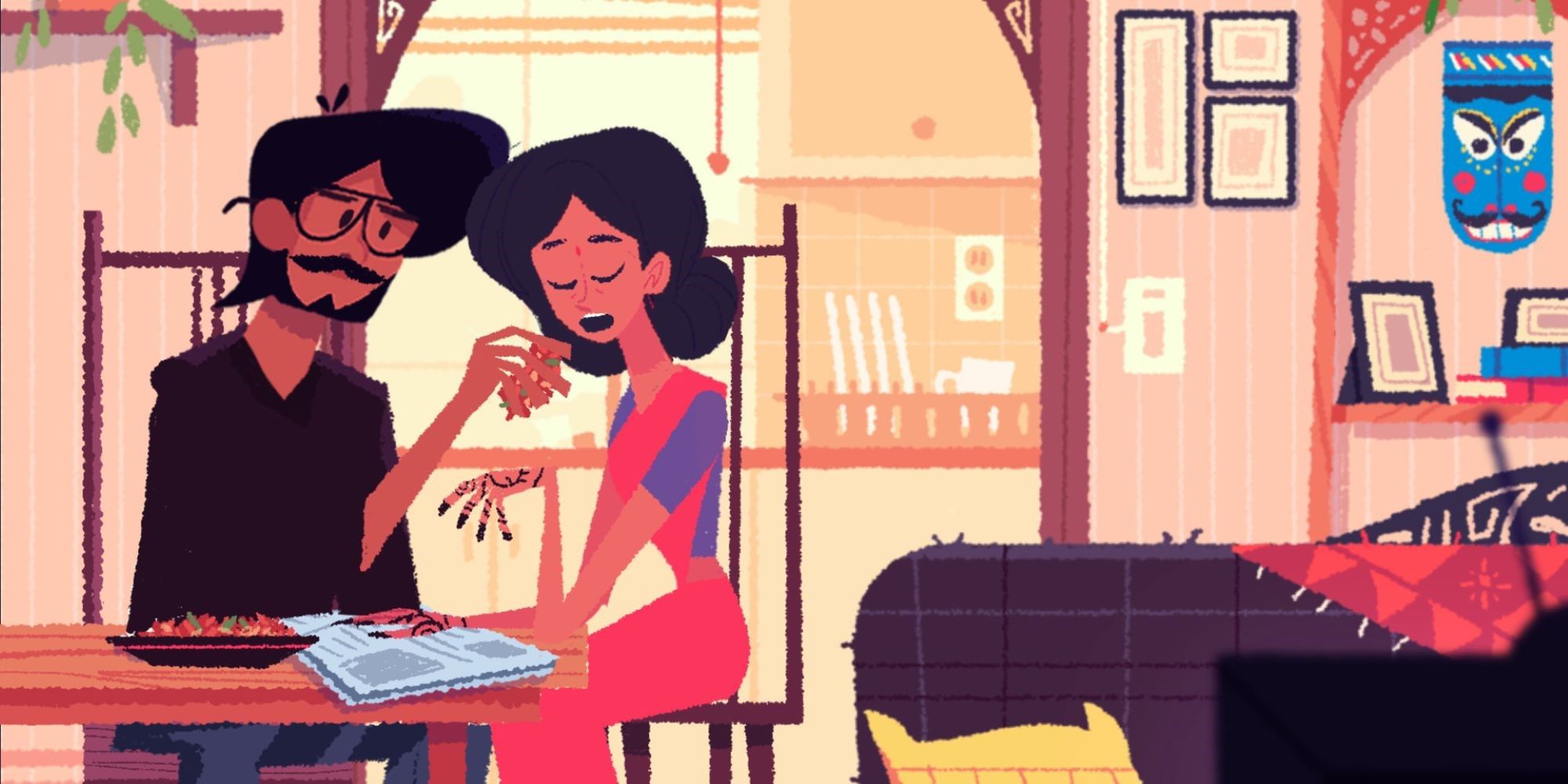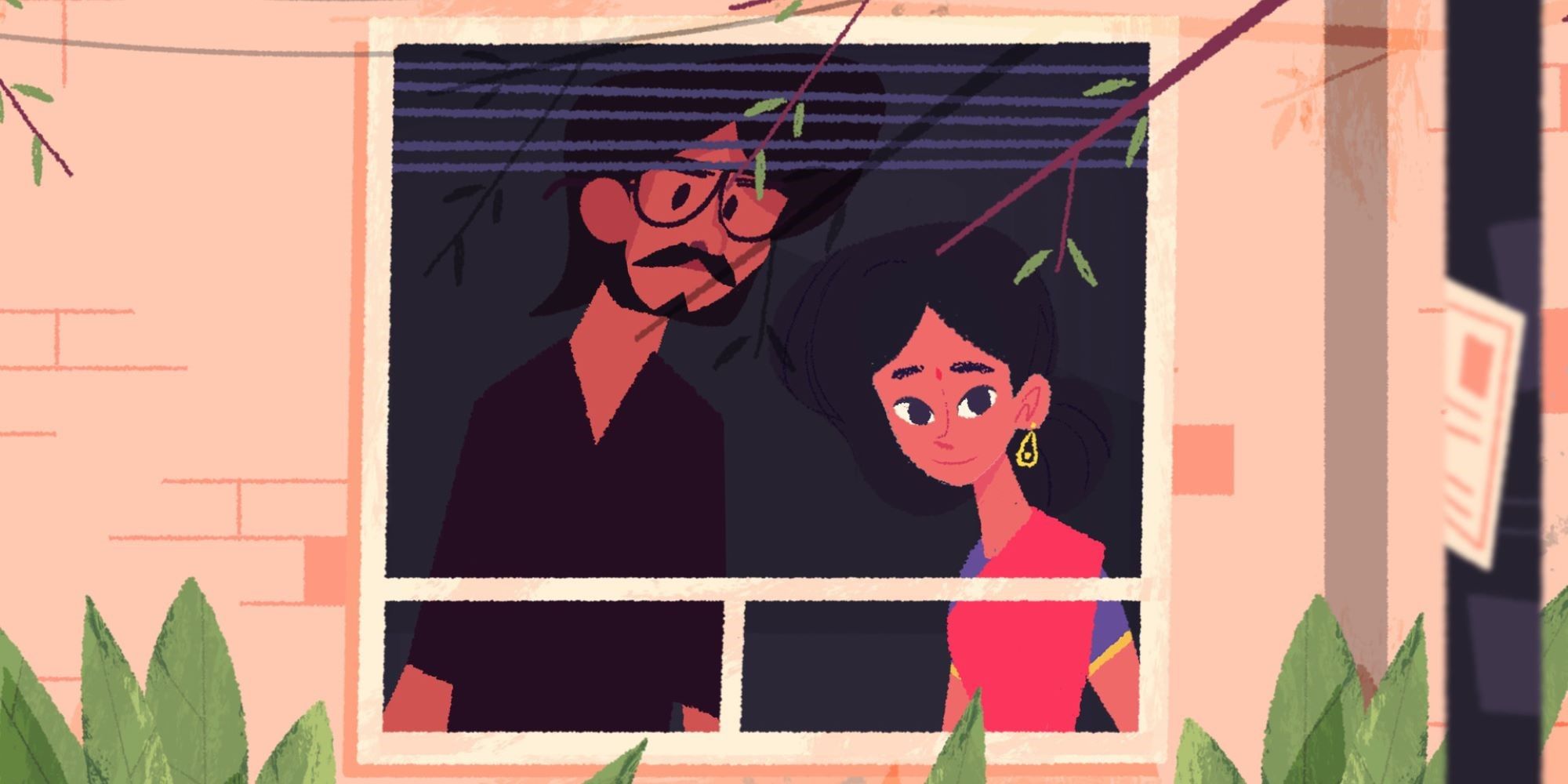I’ve been excited for Venba ever since it was first unveiled. This story-focused game has you play as an Indian mother, Venba, who immigrates to Canada with her family in the 1980s. Part visual novel and part cooking game, you’ll be preparing various dishes and rediscovering lost family recipes, all while having branching conversations and exploring themes of family, love, and loss.
While it sounds simple enough, from the hands-off preview I saw last week, Venba is more complex than it seems on the surface. Venba’s biggest appeal for me personally lies in its theme of losing your culture after immigration. Diaspora is a defining part of my life and identity, as I live in a country made up of immigrants. Two of my own grandparents were immigrants from India, and I often feel a deep sense of loss when I think about the fact that I never learned to cook from them, as they passed when I was still fairly young. My father, their son, doesn’t cook either – those recipes are largely lost to me, and though I can pick and choose recipes from cookbooks or the internet, I’ll have lost the quirks and nuances of how they, specifically, cooked things and drew intimately from my culture.
Venba captures a lot of that in surprising ways. You have a cookbook filled with recipes, but some instructions are missing because it was damaged in the move to Canada. There’s some experimentation here, playing around until things feel and look right. It’s still a low-stakes game, don’t worry – nobody gets punished if things go wrong, you just try again. You can also gain hints and learn more about each recipe from conversations. You can cook as Kavin, Venba’s son, and then have to deal with mistranslations and figure things out with memory cues and visual cues.
This isn’t the only time language comes into play. I’m personally very interested in the loss of language in immigrant populations, especially when it comes to the Westernisation of Asians, because that’s what happened to some of my generation in my country. Venba represents the issue of second language fluency in a striking visual way, muddying the text bubbles where Venba listens to her son speak English. She knows what he’s saying, vaguely, but it’s obscure, and unclear. That’s the experience some players might have in this game. They kind of know what’s going on, but not everything is clear to them. As long as it’s enough to pique their curiosity, the developers say, they don’t need to understand all of what’s going on.
I appreciate that, because it echoes the immigrant experience. It’s another form of characterisation and immersion, forcing the character to see the world through Venba’s eyes. Another part of that is that the game is extremely Tamil, and I love that. The team chose recipes based on how well they would translate into puzzles, cooking every recipe in the game several times in order to get the documentation of the process as accurate as possible. It’s not just the food – the characters and even the music are heavily inspired by Tamil culture. Every song in the game is composed to pay homage to a specific Tamil cinematic director, and performed by South Asian artists. The character design for Paavalan, Venba’s husband, was heavily influenced by the legendary Tamil actor Rajinikanth. There are references to iconic Tamil movies like Perazhagan, as well.
Venba seems to be about food and cooking, yes, but it’s also a nuanced exploration of what it means to lose touch with your culture, and a strong message about the power of food in sharing that culture. I didn’t think this preview would make me more excited about the game, but somehow I’ve found myself yearning to virtually cook biryanis in order to feel more in touch with a country I’ve lost my connection to. Venba has layers I can’t wait to excavate, and soon, I’ll be able to. Venba releases July 31, on Steam and Nintendo Switch.



